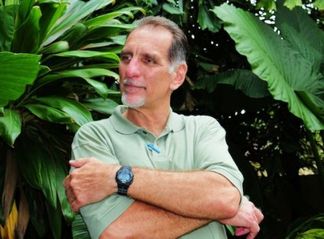 René Gonzalez at home in Cuba. René Gonzalez at home in Cuba. In a beautifully crafted editorial in today's international edition of the Cuban newspaper Granma, Sergio Alejandro Gómez writes about the incomprehension of solidarity, by those who don't share it, as a mathematical disorder in which the release of Cuban Five anti-terrorist hero René Gonzalez somehow reduces the campaign for the freedom of all five men. But five, he points out, is a prime number, divisible only by itself and one. From René's home in Cuba, from their four cells scattered across the U.S., the Five affirm the political reality of their unity. Rene is home, but not fully free; Gerardo is in prison, but some part of him breathes more deeply. 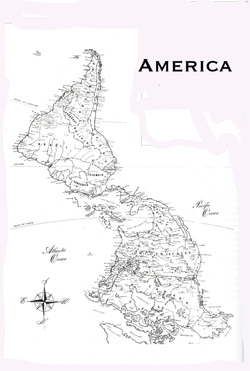 Here in the United States most of us suffer from a related mathematical delusion, a geometric impossibility in which the part has no relationship with the whole, and our country, known as THE United States of America, is in no way united with the rest of America. Although Latin America is the current center of gravity for the possibility of a just and sustainable future, our politicians and corporate media continue to represent it as an unkempt back yard in need of mowing, a process carried out by death squads, CIA led coups, vast sums of money poured into disinformation campaigns, the training of counterinsurgency forces, torture and assassination. 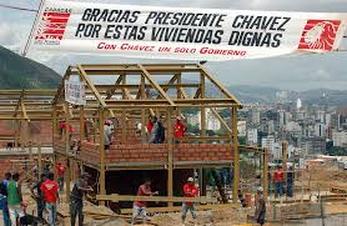 New housing for the poor in Venezuela. New housing for the poor in Venezuela. In spite of the truth recognized two hundred years ago by Simón Bolívar, that the United States seem destined by Providence to plague America with suffering in the name of freedom, the Latin America of my youth, a continent dominated by dictators, torture cells and the bloody warfare of the rich against the poor, has been shaken by an eruption of hope. In many countries now, the homeless are being sheltered, the hungry being fed, the illiterate being educated, the sick receiving medicine, the disenfranchised exercising participatory democracy. Led by these countries, the region as a whole is emerging from the shadows of conquest into a new sovereignty, in which economic and political decisions are being made for the good of its people, not foreign investors. 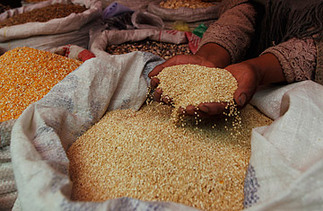 Bolivian quinoa harvest. Bolivian quinoa harvest. And this is a reality brimming with good news for the people of the United States, but most of us don't know it. Unlike the 2.2 million people our government imprisons, the largest proportion of any country in the world, most of us don't recognize our national state of solitary confinement. Very few of us pierce the fog of media isolation enough to know that our neighbors have found alternatives to austerity for the 99% and a vast migration of wealth into the pockets of the 1%. In the newly socialist countries of Latin America, poverty has been dramatically reduced, social programs are expanding, and instead of falling off a fiscal cliff, their economies are growing. 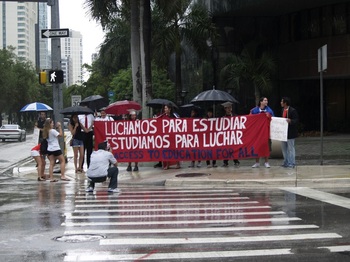 "We struggle to study, we study to struggle." "We struggle to study, we study to struggle." Hope radiates outward from the tangible facts of food, shelter, medicine, and schooling, and the less tangible joys of shared autonomy and empowerment, and like water from a newly emerged spring, it seeps across borders, lending courage and persistence to high school and college students fighting for free education in Chile, environmentalists protesting plans for open pit iron mining in Uruguay, and peace activists organizing an end to violence in Colombia. This expanding unity of purpose keeps the citizens of changing societies pushing for deeper and more radical transformation as their sense of ownership deepens. 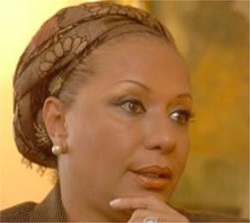 Piedad Córdoba Piedad Córdoba Imagine for a moment that the nightly news was full of these stories. That every household in the United States was familiar with the name of Piedad Córdoba, one of the moving forces behind peace negotiations to end the decades of uncivil war in Colombia, where 64% of worldwide labor activist murders take place, and understood what her candidacy for the presidency of her country could mean for us all. Colombia is one of the regional footholds of US military domination, the site from which assaults are launched against the self-determination of Latina Americans, and that domination is wholly at the service of the same people robbing our pensions, closing our schools, stripping our public health system and privatizing everything in sight. Imagine if we followed the Colombian elections as if our lives depended on it. 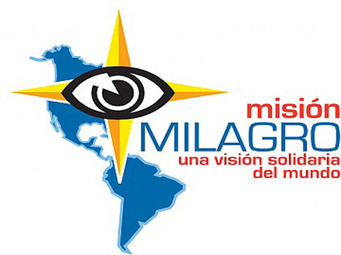 Imagine that alongside Fox News headlines detailing just how the Republican party intends to dismantle even the minimal and inadequate nod toward universal free healthcare that Obama's initiative represents, we also knew about Misión Milagro, a joint project by Venezuela and Cuba that has restored the vision of 700,000 people in over a dozen countries by providing free eye surgery, and aims to reach six million. Imagine everyone with a TV knew that health care is a guaranteed constitutional right in Cuba, Venezuela and Bolivia, or that the Keystone pipeline would be illegal under Bolivian and Ecuadorian law because the rights of the earth are constitutionally protected. What if every foreclosed homeowner in the U.S., every patient bankrupted by illness, every public school teacher in a crumbling system, every homeless person sleeping on cardboard, knew that somewhere else, not far from here, the 99% were winning? 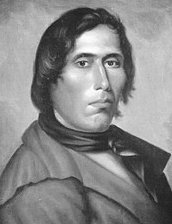 Tecumseh Tecumseh Two hundred years ago, at the same time that Bolívar warned the people of the Americas that the newly formed United States already represented one of the greatest threats to real independence, our own Tecumseh was attempting to unite the indigenous nations of North America to face the same danger. His alliance, based in what is now western Indiana, fell apart after his death in 1813. But sometimes I imagine what could have happened had he not died in that battle, had his alliance had the time to mature and grow, to be a real counterpoint to the imperial course of US history. Even another ten or fifteen years might have turned that pluri-national summit by the Wabash River into the birthplace of an indigenously rooted democracy, capable, like the 21st century ALBA, of holding its own against US expansionism. 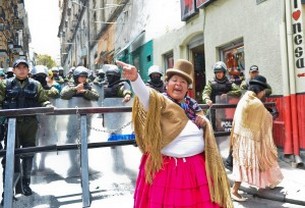 I imagine Bolivarian ambassadors from the south sharing tobacco and strategy by northern lakes, grasslands diplomats feasting on quinoa and corn in Andean strongholds. But most of all I imagine a known legacy of shared aspirations that could help the people of the United States to substitute solidarity for anti-depressants, and could remind us that, just as the North Star guided the enslaved to freedom, there is a southern sky full of stars to reach for. If the faces of campesina activists were as familiar to us as football players, perhaps we could remember that hope, too, is a prime number, indivisible except by itself, that grows exponentially when multiplied.
1 Comment
5/11/2013 05:55:45 am
Beautiful, Aurora! I often think also, if only people could get as engaged in the truly important issues of our time as they are in sports games, what couldn't we accomplish!! To me it's just incomprehensible that a guy could be more interested in who won last night's football game than in any of a thousand much more important social and environmental justice issues.
Reply
Your comment will be posted after it is approved.
Leave a Reply. |
About Aurora
Aurora Levins Morales is a disabled and chronically ill, community supported writer, historian, artist and activist. It takes a village to keep her blogs coming. To become part of the village it takes, donate here. Never miss a post!
Click below to add this blog to your favorite RSS reader: Archives
September 2017
Categories
All
|
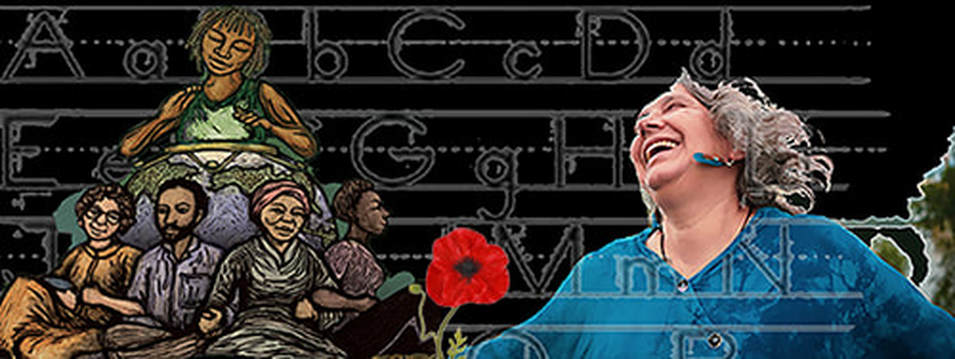
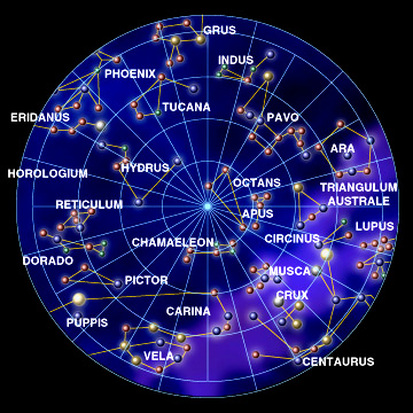
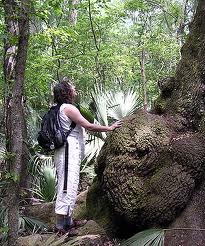
 RSS Feed
RSS Feed
